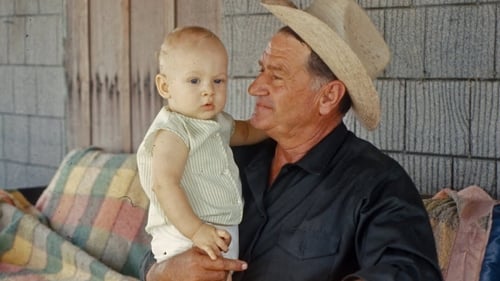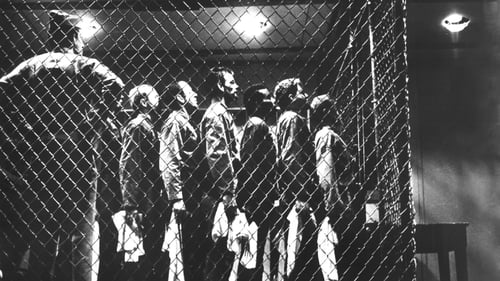Les Marines (1957)
장르 :
상영시간 : 22분
연출 : François Reichenbach
시놉시스
Reichenbach follows the first months training of US Army marines.

A film about three of our leading visual artists, Bhupen Khakar, Nalini Malani and Vivan Sundaram. It takes, as its point of departure, a glass mural on which all three were working, then zeros into each of them. It links them to their physical and mental worlds through cinematic devices like associative sounds, variable light and montage. Compositionally, the visuals aim to link with the styles of each artist, as well as the larger narrative traditions of India.

Europe 1900 (1968) tells about the history of luxury while problematizing memory and our images of the past.

In Razor Blades, Paul SHARITS consciously challenges our eyes, ears and minds to withstand a barrage of high powered and often contradictory stimuli. In a careful juxtaposition and fusion of these elements on different parts of our being, usually occurring simultaneously, we feel at times hypnotised and re-educated by some potent and mysterious force.

"TESTAMENT is James Broughton's exquisite self-portrait. A major figure in avant-garde filmmaking and poetry since the 1940s, Broughton views his life and life's work with irony, charm, humor, and a combination of joyous self-love and gentle self-depreciation. Scenes from his earlier films mix the elements of humor, magic, slapstick, melodrama, and romance which mark his aesthetic. A plethora of rich personal symbols is woven throughout the film, tied together by verbal games, Zen poems, anecdotes, songs, a child's prayer, dreams, and visions." - Karen Cooper "James Broughton's TESTAMENT is one of the most remarkable films ever produced within the American independent cinema. It is the most moving and most sublimely detached of the recent trend of filmic autobiographies - by Jerome Hill, Jonas Mekas, and Stan Brakhage, to name only the masters, and Broughton's peers." - P. Adams Sitney "A beautiful, important, mysterious work." - Amos Vogel

A leading director of the Czech film renaissance provides a philosophical meditation on life and death, set amidst complex hospital apparatus and the sadness, hope, or resignation of the patients. Existentialist rather than optimist, the approach is one of humanistic atheism, accepting death as part of life. Interviews with doctors and nurses explore their outlook; all speak of death as a fact, without either sentimentality or religiosity. The studied objectivity of the film only imperfectly hides an intense emotionality.

In this CBS News production broadcast on Thanksgiving 1960, Edward R. Murrow points out the plight of migrant farm workers in America. Topics range from the harsh living conditions, endless travel, low wages, and poor opportunities for their children.

The story of a poor girl who leaves her starving family and sheep for a more prosperous village. Her grandfather finds her and tries to convince her to return to her home.

Shooting in 1966 without script, story, or any narrative preconception, Nelson and Wiley created a masterwork of ‘60s independent cinema. The Great Blondino follows an anachronistically attired young fellow as he navigates a beguiling, sometimes troubling world with a curiosity that opens us wide to the filmmakers’ inspired, freeform vision. In many ways, the wonder of Blondino may echo the excitement of invention and exploration that Nelson and Wiley experienced in the making of the film. Utterly exuberant and freed from rote cinematic restriction, it embodies an artistic rigor and direction that also prevents it from ever seeming too unhinged. An incredible feat of tightrope walking. —Mark Toscano

A short documentary that explores a blue-collar community’s growing unease with the Vietnam War. It was produced in response to President Nixon’s famous November, 1969 speech when he contrasted the unlawful and vocal anti-war protesters to the respectful “silent majority” who were in favor of remaining in Vietnam to fight communism. This film explores the thoughts and opinions of the “silent majority” represented by the folks living in the Garfield Ridge neighborhood on the southwest side of Chicago.

A documentary overview of silent cinema pioneer Edwin S. Porter.

The U.S. Army Signal Corps Pictorial Division made this short documentary shortly after the end of WWII to look at the after-effects of the atomic bombs dropped on Hiroshima and Nagasaki. There is no credited crew or cast.

This film was made by the U.S. government during World War II to show its young servicemen the results of "fooling around" with "loose women" overseas. Actual victims of such sexually transmitted diseases as syphilis and gonorrhoea are shown, along with the physical deterioration that accompanies those diseases.

Taken from Boccaccio's Decameron, this lovely puppet film tells the bawdy story of the beautiful young Venetian lady who confesses her sinful passion for the Archangel Gabriel to a lustful monk, who promptly impersonates him in her bedroom with predictable results. Amidst the film's ribaldry, the hypocrisy and false piety of the monk are mercilessly mocked.

Another short documentary of "Real Food, Roots Music, and People Full of Passion for what they do!", Spend It All is Les Blank's spirited look at the French-speaking Cajun community of southwest Louisiana.

Feature film.

Shot in high-definition video using rear-screen process plates from classic Warner Bros. films noirs. A young man (in color) searches for his past through black-and-white scenes from "The Big Sleep," "Mildred Pierce," and "Strangers on a Train."

Universal Citizen is a multifaceted personal travelogue that brings us to a real Universal Hotel, in Guatemala, and to the same public square in Siena that appears at the beginning of Universal Hotel; at the center of the film are Thompson's off screen meetings with a Libyan Jew and former Dachau inmate who works as a smuggler in Guatemala and refuses to be photographed. (Jonathan Rosenbaum)

This bold, stunning exploration of a white mother who undergoes a radical mastectomy and her Black daughter who embarks on a modeling career reveals the profound effects of body image and the strain of racial and sexual identity on their charged, intensely loving bond. At the heart of Onwurah’s brave excursion into her mother’s scorned sexuality is a provocative interweaving of memory and fantasy. The filmmaker plumbs the depths of maternal strength and daughterly devotion in an unforgettable tribute starring her real-life mother, Madge Onwurah.

An ultra-realistic depiction of life in a Marine Corps brig (or jail) at a camp in Japan in 1957. Marine prisoners are awakened and put through work details for the course of a single day, submitting in the course of it to extremely harsh and shocking physical and mental degradation and abuse.















